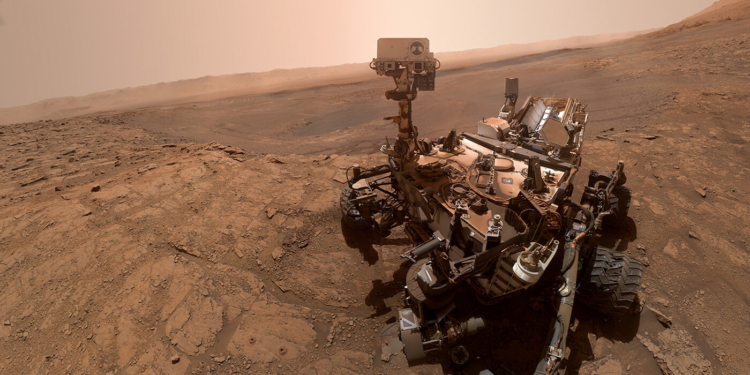Source: unkown.
ON NOVEMBER 9th, 2001, Mike Moore, then Director-General of the World Trade Organization (WTO), inaugurated the institution’s Fourth Ministerial Conference in Doha, Qatar, under the exclusive gaze of the local royalty and ministers or delegates hailing from 142 countries. It was probably not yet clear to those present that this day, years later, would mark a decisive turning point in the normative function of then-young Organization.
Indeed, while the benevolent references to economic development in the ex-Director’s speech may today amuse the historian who knows the story, Moore’s enthusiasm while announcing China’s accession as proof that “trade is a great unifying force for peace” may also, who knows, make the highest US dignitary groan.
It is clear from the vast literature dealing with WTO history that the Doha Round has significantly affected the Organization. Moreover, the myriad of new information, detail, and negotiating factors that emerged then still fuel current discussions, debates, reflections, and even confrontations among the countless delegates, ambassadors, academics, journalists, and other members of the vast network of actors that make up the WTO and its environment.
Development is, after all, a core concern for all institutions of global economic governance. The WTO is no exception.
Scholars Mariella Pandolfi and Phillip Rousseau put it this way: “The significance of the development agenda within the WTO is that it highlights precisely the choice that now needs to be made regarding the tempo of the institution. Should it follow the pace of its developing members, which constitute a majority in terms of sheer number (although a minority in terms of trade), or, on the contrary, will it opt for the pace of the minority of developed members (although a majority in terms of trade transactions)?”
Recognising that the Uruguay Round had been largely influenced by the priorities of the world’s richest countries, and no doubt traumatised by the events of Seattle in 1999, it was important for the WTO in 2001 to place a significant emphasis on the needs of its developing country members at Doha, where was to be held history’s first official “pro-development” trade negotiation round.
The Doha Round, then, aimed to deal with a wide range of issues and thereby rendered the WTO much more ambitious than the GATT had ever been with regards to development. The Round came to symbolize economic justice. Raw commercial interest was put to the side, it was said. On the camp of the Organization, a considerable effort was devoted to public relations.
Quite rapidly, though, the Doha Round talks took on the familiar contours of a North-South confrontation. Oxfam campaigned against the “broken promises of Doha” and some developing countries cried betrayal. What is more, the failure of the negotiations was quickly perceived as a failure of the WTO to adhere to the United Nation’s Millennium Development Goals, the time’s model for global governance coherence.
Across the media, one would hear the words “trade justice” or “fair trade” at unprecedented frequency. More and more, international trade was being redefined in terms of economic development.
Unsurprisingly, that was seen in a negative light by the richer members of the WTO. Insofar as development as an issue was more closely associated to other international bodies than to the WTO, however valorous, such reinterpretations of the Organization’s mandate were deemed intrusive by conservative commentators.
The WTO “is not a development agency,” read the Sutherland Report, commissioned by its Director-General, in 2004. Elsewhere, scholars such as Bernard M. Hoekman and Michel Kostecki felt obliged to point out that “the development dimension was in fact only ‘symbolic’ in the Doha Agenda”; while Mehdi Abbas argued that “the WTO has nothing to offer in terms of development,” and that the desire to adjust the organization’s mission to the imperatives of development “amounts to overloading the institution and ultimately blocking its functioning.”
Among the many lessons of Doha, one is of particular interest here. Plainly, the WTO’s last twenty years cannot be a success from an organizational point of view. We have witnessed the emergence of dissensus within the organization, as anthropologist Marc Abélès observed. Consensus-based decision-making is no longer consensual. The multilateral track is being cast aside: as of 2017, influential groups of members have introduced four “new themes” to be negotiated plurilaterally at the WTO.
But is that such a bad thing? While some pundits do boldly affirm so, the truth is that nobody knows yet. While Doha’s “Development Agenda” remains pivotal within the organization, new models of plurilateral negotiations have based legitimacy claims on the very promise that they shall eventually contribute to advance development matters. What is certain, however, is that the organizational processes animating the WTO today are significantly more complex and ambiguous than twenty years ago.
Author
-
Murillo Salvador is chief editor at International-Organization.Com. In the past, he has worked at the Organisation for Economic Co-operation and Development, and at the Mission of Brazil to the World Trade Organization. He currently lives in Geneva.
View all posts
Related Articles
June 7, 2021
The United Nations’ ‘Wild West’ of Artificial Intelligence
For an organization like the United Nations, artificial intelligence can have promising applications in the field. Its usage should follow strict guidelines that have yet to see the light of day.
May 31, 2021
Who Owns Space’s Natural Resources?
Space governance is emerging as a major issue of our time. In-between old multilateral rules and new bilateral developments, international cooperation on space has had a hard time materializing.
May 24, 2021
Covid-19 and the End of “Global Health”
Covid-19 has unveiled big problems with the world's handling of infectious disease. As a global problem, it has not prompted a global response. This failure of global health should not be repeated.


